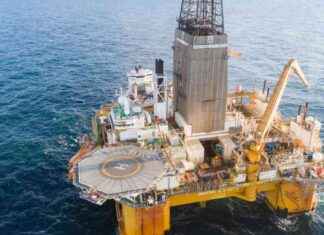Munich (dpa / lby) – The Association of Bavarian Business (vbw) expects economic growth in the Free State of only 1.8 percent in the current year. “Supply bottlenecks and price increases, especially for energy, are a burden for companies. The risks are enormous,” said association president Wolfram Hatz on Wednesday in Munich.
“Our company’s order books are full. But they cannot be processed,” said Hatz. Industry, construction and trade suffered from a lack of materials, all sectors from the high energy prices. Another problem is the shortage of skilled workers. The vbw forecast index for growth, which is calculated from countless individual data from the sectors, has fallen by 21 to 97 points since the autumn and is now below the long-term average. The employment forecast index remained high at 142 points, falling only 2 points. In view of the inflation, wage increases are inevitable, said Hatz.
“In our base scenario, we assume that gross domestic product in Bavaria will increase by 1.8 percent in 2022. We are assuming here that the second quarter of 2022 will be weaker than the first and that the economy will recover moderately in the second half of the year.” said Hatz. If the supply chains remain tense, inflation is high and new corona measures are taken in autumn, the economy is likely to grow by a maximum of 1.2 percent. If the supply of natural gas from Russia was stopped, there would be a recession.
In order to reduce dependence on Russian gas, the last German nuclear power plants should not be shut down for the time being, said the vbw president. The switch to renewable energy sources must be accelerated and the power lines from northern to southern Germany must finally be built.
The association president also called for all EU projects with additional burdens and bureaucracy for companies to be put on hold – for example sustainability reporting, the tightening of fleet limits and the phase-out of the combustion engine in 2035. The economy has been in crisis mode for two years and can not cope with the transformation “if the companies are constantly being put in new chains,” warned Hatz.






